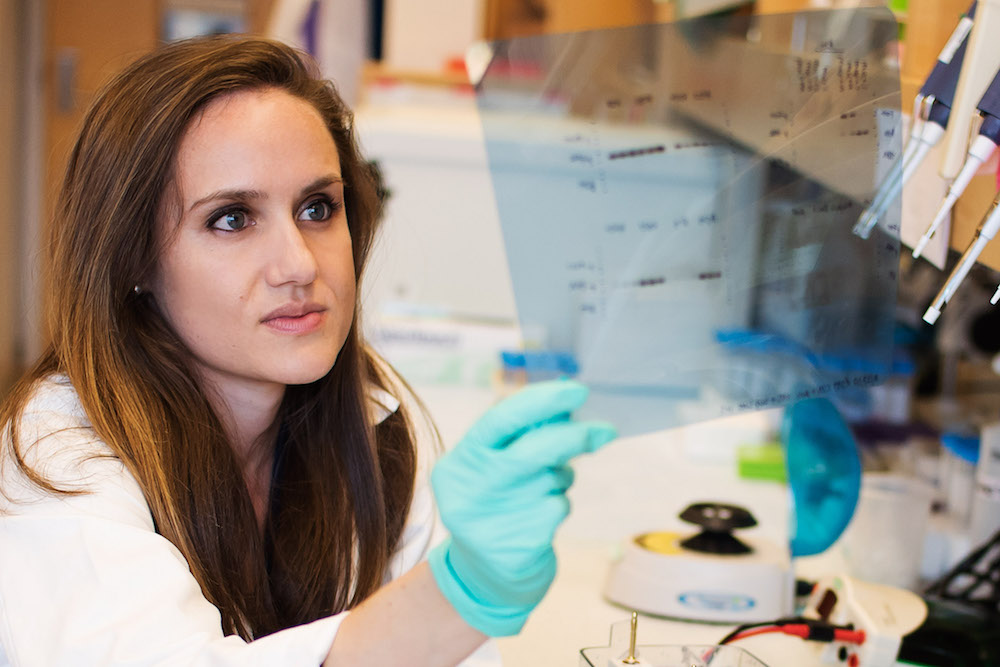Thoracic Oncology Program Research
The Thoracic Oncology Lab has been making great strides in both clinical and basic research over the past several years. We advanced cutting-edge therapeutics from in silico design and benchtop development with a first-in-class novel pan RAS inhibitor as well as a novel dual acting anti-PARP/anti-microtubule inhibitor, both in clinical trials. An international clinical trial for early-stage lung cancer is being conducted to test an innovative molecular risk stratifying diagnostic assay which has benefited thousands of patients. We have continued our basic research focused on developmental pathways exploited by thoracic malignancies and cancer in general, such as WNT and Hippo signaling. Ongoing studies for immuno-therapeutic approaches to strategically target extra and intracellular moieties in these pathways are currently underway.
We designed a 14 gene molecular assay to identify aggressive biology in early-stage non-small cell (adenocarcinoma) lung cancers and predict prognosis. This assay is being tested in a prospective, international, randomized clinical trial and is a CMS (Medicare) approved and reimbursed CLIA assay. We are able to predict and guide adjuvant therapy to cure patients with molecular stratified tumors of intermediate and high risk. The assay has saved thousands of early-stage NSCLC patients already and once approved in guidelines upon completion of the international Phase III trial will save tens of thousands of each year.

Photo by Marco Sanchez, UCSF DM Photography
Our group was among the first to demonstrate that aberrant Wnt signaling appeared to cause lung cancer and mesothelioma through overexpression of Dishevelled (Dvl) proteins. Our lab also discovered the critical survival role of Wnt protein ligands as a survival mechanism. We derived a monoclonal antibody to target both the Wnt-1 and Wnt-2 genes and found that it induced apoptosis in cancer cells. Recently we developed a novel humanized antibody-drug conjugate (ADC). Anti-Wnt2-ADC has shown significant anti-tumor effects in vitro and in vivo in Wnt driven tumors including lung cancer, mesothelioma, pancreatic cancer among others. A Phase I clinical trial is expected to start within the near future. We are optimistic that this line of work will lead to new effective treatment for lung cancer, mesothelioma and other cancers.
